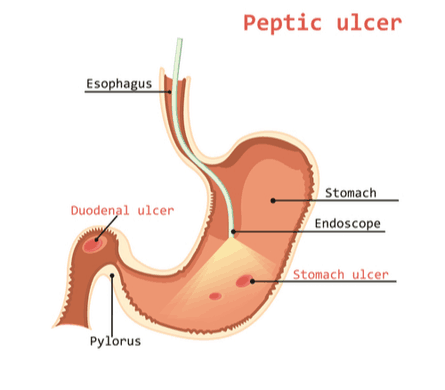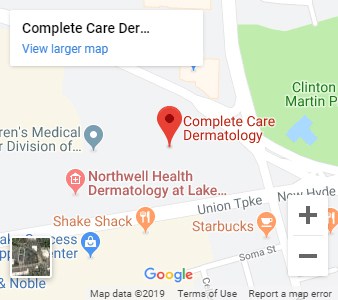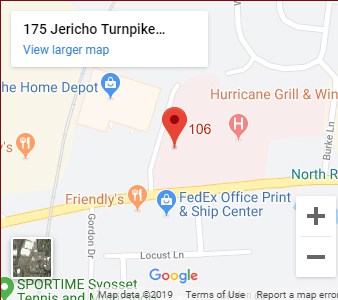Signs You May Have a Peptic Ulcer
Peptic ulcers, or stomach ulcers, are breaks or holes in the lining of the stomach. An ulcer in the first part of the intestines is known as a duodenal ulcer. An ulcer in the stomach is known as a gastric ulcer. If you think you may have an ulcer, you should see a gastroenterologist. Gastroenterologists are specialists in the diagnosis and treatment of peptic ulcers. Here are 5 signs you may have a peptic ulcer.

1. Burning pain- The most common peptic ulcer symptom is a burning sensation or gnawing pain in the middle of your abdomen. The pain may come and go for several days or weeks. Even though discomfort may be mild, peptic ulcers can worsen if they aren’t treated. Taking antacids can relieve the discomfort, but it will keep coming back until the peptic ulcer is treated by a doctor.
2. Nausea- The symptoms of peptic ulcers may include nausea. Nausea is a feeling of sickness with an inclination to vomit. Nausea has many possible causes. Some common causes of nausea include appendicitis, infection, reactions to some medicines, migraines, food poisoning or intestinal blockage.
3. Vomiting- The symptoms of peptic ulcers may include vomiting. Vomiting after consumption of food may be caused by an ulcer, food poisoning, or gastritis (inflammation of the stomach lining). Usually, vomiting is harmless, but it can be a sign of a serious condition. Some examples of serious conditions that may result in vomiting include Acute liver failure, appendicitis, Pancreatic cancer, or intestinal blockage.
4. Discolored stool- Blood in the stool is often a sign of a problem in the digestive tract. Blood in the stool may come from any area along your digestive tract. A stomach ulcer can cause discolored stools that appear darker or bloody. A bloody stool may indicate that your stomach ulcer is growing in size or is becoming more severe.
5. Heartburn- Another symptom of peptic ulcers is heartburn. Heartburn is a condition that’s caused when stomach acid flows up into your esophagus. This leads to a burning discomfort below your breastbone or in your upper belly. Your doctor will prescribe medications to relieve your symptoms and help your ulcer heal.
If you have any of these signs and symptoms, you should seek treatment. A visit to the gastroenterologist will bring the relief you need. Peptic ulcers can not only be uncomfortable causing you pain but can also lead to other complications that may be dangerous.



